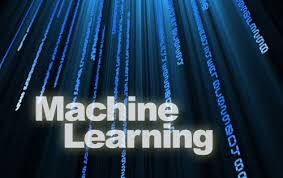As technology becomes more prevalent in our everyday lives, direct mail becomes less relevant and email seems to be the logical next step. That point is made by the ever-increasing industry of email marketing. Less overhead, more revenue and the fringe benefit of not using so much paper! The less paper the advertising industry uses, the healthier our planet is, right? Well, that may be so, but there are some not-so-green side-effects of email…
According to a 2003 study (link) approximately every 10-20mb of electronic storage consumes 1lb of coal per year. Which doesn’t sound like much, until you realize that 3% of our nations energy is dedicated to the Internet. With email marketing on the rise, the mantra is often bigger equals better. That is to say, the more emails sent, the higher the likelihood of hitting inboxes, and the higher the likelihood of reaching the consumer. But when you get down to it, smaller, focused email campaigns coupled with good email reputation will arrive in more inboxes, which is not only good for the marketer, but it’s good for the planet. Creating less needlessly stored email means less power consumption, and a healthier planet…
As technology becomes more prevalent in our everyday lives, direct mail becomes less relevant and email seems to be the logical next step. That point is made by the ever-increasing industry of email marketing. Less overhead, more revenue and the fringe benefit of not using so much paper! The less paper the advertising industry uses, the healthier our planet is, right? Well, that may be so, but there are some not-so-green side-effects of email…
According to a 2003 study (link) approximately every 10-20mb of electronic storage consumes 1lb of coal per year. Which doesn’t sound like much, until you realize that 3% of our nations energy is dedicated to the Internet. With email marketing on the rise, the mantra is often bigger equals better. That is to say, the more emails sent, the higher the likelihood of hitting inboxes, and the higher the likelihood of reaching the consumer. But when you get down to it, smaller, focused email campaigns coupled with good email reputation will arrive in more inboxes, which is not only good for the marketer, but it’s good for the planet. Creating less needlessly stored email means less power consumption, and a healthier planet.
Food for thought, especially considering more and more households are going “paperless.” It seems that making this transition could be as big a challenge as Hercules fighting the hydra — cut off one head only for two more to grow in its place. But as with everything else in this industry, responsibility is key. Pay attention to what happens with your email. Sowing seeds far and wide is not always as effective as planting in well cultivated soil. The same goes for email; harvesting lists, working with less-than-reputable affiliates, and mass-marketing are not only detrimental to your reputation, but also the earth itself. Building good relationships with customers and focusing your campaigns will not only benefit your company, it could benefit the health of the planet as well.






